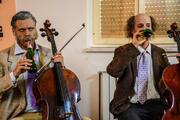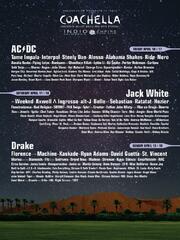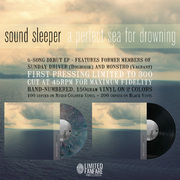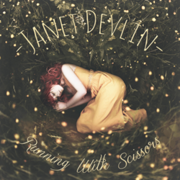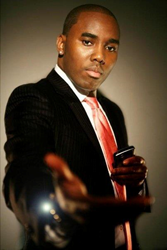New York, NY (Top40 Charts) American University School of Communication professor W. Joseph Cambpell's new book examines how events that unfolded in 1995 have exerted lasting influence in mainstream American life.
"Given the milestones, it is not surprising that 1995 extends a long reach and is really the year that marked the close of one century and the dawning of another," said Campbell.
American University's School of Communication professor W. Joseph Campbell's new book, 1995: The Year the
Future Began, examines a pivotal year in recent American history that was defined by significant developments in new media, domestic terrorism, crime and justice, international diplomacy, and political scandal. The book offers fresh insights into five decisive moments of 1995 and discusses how each has exerted lasting influence on American society, policy and culture.
The chapters of Campbell's 1995 book examine the emergence of the
Internet and the World Wide Web in mainstream American life; the deadly Oklahoma City Bombing; the sensational O.J. Simpson murder trial; the U.S.-brokered negotiations at Dayton, Ohio that ended the Bosnian War; and the first furtive encounters at the White House between Bill Clinton and
Monica Lewinsky.
"Nineteen ninety-five was a year of extraordinary events, a watershed at the turn of the millennium," Campbell points out. "Given the milestones, it is not surprising that 1995 extends a long reach and is really the year that marked the close of one century and the dawning of another."
The Rise of the Internet
The
Internet and the World Wide Web reached a critical mass in 1995 and entered mainstream consciousness. Several now-familiar mainstays of the digital world such as Amazon.com, eBay, Craigslist, and Match.com all established a presence online during 1995, which suggests the year was a digitally fertile time, Campbell says. The initial public offering (IPO) in August 1995 of the shares of Netscape Communications, the maker of a very popular Web browser, was a dramatic moment that illuminated the Web for millions of people. And it fueled the dot.com boom of the second half of the 1990s. Nearly everyone from Wall Street brokers to college kids soon realized the Web was a place where fortunes could be made.
Campbell says 1995 marked the time when the Web was making "the transition from vague and distant curiosity to a popular fascination — a phenomenon that would change the way people work, shop, learn, communicate, and interact."
Oklahoma City Bombing
The bombing of the Alfred P. Murrah Federal Building in downtown Oklahoma City on April 19, 1995 is the deadliest act of homegrown terrorism in U.S. history. The attack marked a turning point in domestic security precautions, says Campbell. His book describes how the bombing in the heartland stunned Americans and deepened a national preoccupation with terrorism, helping to mold a now-familiar, hyper-cautious, security-first mindset.
Within weeks of the Oklahoma City bombing, a two-block portion of Pennsylvania Avenue (often called America's "Main Street") was abruptly closed to vehicular traffic near the White House, signaling the rise of security-related restrictions intended to thwart terrorist threats. Such restrictions, Campbell writes, "have since become more common, more intrusive, more stringent, and perhaps even more accepted."
"Trial of the Century"
The O.J. Simpson trial was the first high-profile U.S. criminal trial where forensic DNA testing was a crucial component — and was on public display as never before. While Simpson was found not guilty, the trial helped settle disputes about the value and validity of DNA evidence, Campbell writes. It also anticipated popular interest in DNA testing, as suggested by the CSI-type programs developed not many years after the Simpson trial.
Simpson's trial attracted extensive, even exhaustive, live media coverage and was commonly called the "Trial of the Century." While that characterization was overstated, the Simpson trial remains a standard against which other high-profile murder cases are measured — and found wanting, according to Campbell.
The Simpson trial also illuminated divisions of race and class in America. Simpson, a black former football star, was accused of killing his former wife and her friend, both of whom were white. Many African Americans cheered Simpson's acquittal, which was announced on October 3, 1995, and broadcast live; while many white Americans were crestfallen. But Campbell also indicates that it is important to remember how anomalous the Simpson trial was. Few murder defendants have the resources to assemble the legal talent that Simpson recruited to his defense team. Multimillion dollar wealth allowed Simpson to put on a defense the likes of which few murder defendants can ever hope to mount, Campbell says.
Clinton-Lewinsky Scandal
The Clinton-Lewinsky affair began during the partial shutdown of the federal government in mid-November 1995, and burst into a full-blown scandal in 1998 that led to Clinton's impeachment, trial, and acquittal on charges of perjury and obstruction of justice. He was accused of lying under oath about his relationship with Lewinsky, an unpaid White House intern. And it was the first time an elected U.S. president had been impeached.
The votes in the House of Representatives to impeach the president and in the Senate to acquit him fell largely along party lines: Republicans were mostly in favor; Democrats, mostly opposed. Those votes, Campbell says, "signaled a sharp partisan divide that has intensified in the years since. Both major political parties have become more ideologically unified," he points out, adding that the impeachment battles contributed to the polarization that characterizes the contemporary political landscape.
Campbell further explains that "Clinton survived the spectacle of his impeachment by the House of Representatives, but paid a price for his mendacity in fines and the surrender for five years of his license to practice law in Arkansas. Those penalties tend not to be frequently recalled," says Campbell.
The book suggests that Lewinsky would never have had the opportunity to get close to Clinton if not for the government shutdown of November 1995. "Most White House staffers were furloughed during the shutdown, which meant the unpaid interns were assigned tasks to help keep the White House running. And that placed some of them in proximity to high-level officials. Lewinsky during the shutdown was assigned to the chief of staff's office, not far from the Oval Office," Campbell adds.
Peace in Bosnia
The U.S- brokered Dayton peace accords were reached on Nov. 21, 1995, and brought an end to a vicious war that claimed 100,000 lives in Bosnia. The leaders of Bosnia, Croatia, and Serbia met for three weeks of intense and complex negotiations in near-seclusion at the Wright-Patterson Air Force base near Dayton, Ohio.
The Dayton accords represented a major foreign policy success of Clinton's presidency. They had the effect of emboldening U.S. foreign policy and boosting the country's ambitions abroad.
Campbell writes that Bosnia was the first in a succession of increasingly ambitious military operations overseas, which gave rise to what has been called a "hubris bubble" that expanded as military success encouraged even more ambitious undertakings. "The "hubris bubble" finally burst in the aftermath of the invasion of Iraq. After taking Baghdad and toppling Saddam Hussein's Baathist regime, the United States was thoroughly unprepared for the bloody insurgency that followed. The puncturing of the post-Dayton "hubris bubble" led to a decided retrenchment of U.S. ambitions abroad," Campbell says.
Timely Reappraisal
Campbell shows us how the year 1995 was a time of innovation and converging trendlines. Looking back to 1995 reveals, he says, "how far we've come in two decades — and how long-lasting some of our preoccupations have been."
The book closes with a call for a broad reassessment of the 1990s. The decade was not, Campbell writes, a "honeymoon from history" as it has been caricatured. Rather, he says, the 1990s "were a searching time, rich in promise and in disappointment." And right in the middle of that fascinating decade, he says, was its most decisive and memorable year.

















